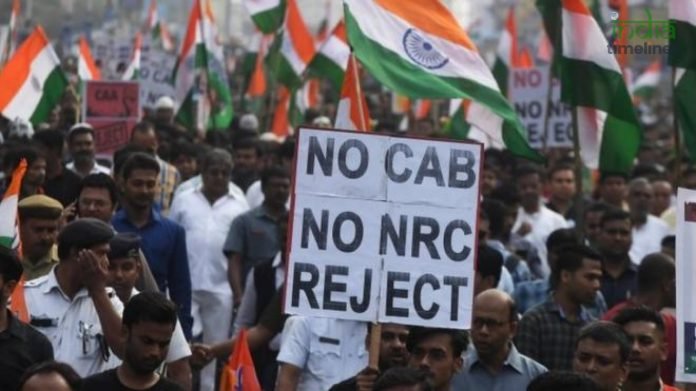
The Citizenship Amendment Act (CAA) has stirred widespread debate and protests across India since its introduction. This legislation, enacted by the Indian government, aims to amend the Citizenship Act of 1955 to provide expedited Indian citizenship to persecuted religious minorities from neighboring countries like Pakistan, Afghanistan, and Bangladesh. However, one of the most contentious aspects of the CAA is its exclusion of Muslims from the list of eligible beneficiaries.
Introduction to the Citizenship Amendment Act (CAA)
The CAA was passed by the Indian Parliament on December 11, 2019, and subsequently received presidential assent. It offers a pathway to Indian citizenship for Hindu, Sikh, Buddhist, Jain, Parsi, and Christian migrants who fled religious persecution in the aforementioned Muslim-majority countries before December 31, 2014.
Background of the CAA
The roots of the CAA can be traced back to the Bharatiya Janata Party’s (BJP) election manifesto, which promised to grant citizenship to persecuted minorities from neighboring countries. The BJP, led by Prime Minister Narendra Modi, sees the CAA as a humanitarian gesture to provide refuge to those facing religious persecution.
Controversies Surrounding the CAA
Exclusion of Muslims
Critics argue that the CAA is discriminatory as it explicitly excludes Muslims from its ambit. This exclusion has led to accusations of Islamophobia and religious bias against the Indian government. Many view it as a departure from India’s secular ethos enshrined in its constitution.
Criticisms and Protests
The enactment of the CAA triggered widespread protests across India, with demonstrators expressing concerns over its discriminatory nature and potential erosion of secular values. Critics fear that the CAA, coupled with other proposed measures like the National Register of Citizens (NRC) and National Population Register (NPR), could marginalize Muslim communities and render them stateless.
Legal and Constitutional Perspectives
Legal experts have raised questions about the constitutionality of the CAA, arguing that it violates the principle of equality before the law enshrined in the Indian Constitution. Several petitions challenging the law are pending before the Supreme Court of India, awaiting adjudication.
Political Implications
The CAA has become a polarizing issue in Indian politics, with the ruling BJP staunchly defending it as a measure to protect persecuted minorities. Opposition parties, on the other hand, have vehemently opposed the law, labeling it as discriminatory and divisive.
International Response
The international community has closely monitored developments related to the CAA, with several countries and human rights organizations expressing concerns over its discriminatory provisions. Some have called for a repeal of the law, while others have urged India to uphold its secular principles and respect the rights of all its citizens.
Impact on Migrant Communities
The implementation of the CAA has raised apprehensions among migrant communities, particularly those belonging to religious minorities from neighboring countries. While some have welcomed the prospect of obtaining Indian citizenship, others remain skeptical about the government’s intentions and fear potential statelessness.
Government’s Justification
The Indian government has defended the CAA as a humanitarian gesture aimed at providing succor to persecuted religious minorities. It maintains that the law does not target any specific community and is intended to right historical wrongs by offering refuge to those facing religious persecution.
Future Outlook
The fate of the CAA remains uncertain amid ongoing legal challenges and widespread public opposition. The government’s response to criticisms and protests will likely shape the course of future developments, with potential implications for India’s social fabric and democratic ethos.
Conclusion
The Citizenship Amendment Act (CAA) has emerged as a contentious issue, sparking debates on secularism, inclusivity, and constitutional values in India. Its exclusionary provisions and perceived discriminatory nature have fueled protests and legal challenges, highlighting deep-seated divisions within Indian society. The resolution of the CAA saga will undoubtedly have far-reaching implications for the country’s future trajectory and its commitment to pluralism and democracy.
FAQs
1. Is the CAA discriminatory?
While the government argues that the CAA is a humanitarian gesture, critics contend that its exclusion of Muslims makes it inherently discriminatory.
2. What are the legal challenges to the CAA?
Several petitions challenging the constitutionality of the CAA are pending before the Supreme Court of India.
3. How has the international community reacted to the CAA?
The international response to the CAA has been mixed, with some countries expressing concerns over its discriminatory nature.
4. What are the political implications of the CAA?
The CAA has become a polarizing issue in Indian politics, with the ruling party defending it and opposition parties opposing it vehemently.
5. What is the future outlook for the CAA?
The fate of the CAA remains uncertain, pending legal adjudication and ongoing public protests and debates.

































